Abstract
In pigeons responding under a 180-sec fixed-interval schedule of reinforcement, the frequency distribution of the duration of the final interresponse time before the reinforcer was compared with the distribution of the preceding two interresponse times. The results confirmed qualitatively and quantitatively the expected preferential reinforcement of longer interreinforcement times under fixed-interval reinforcement. Requirements at reinforcement were then changed to eliminate the preferential reinforcement of longer interresponse times. Local patterns and mean rate of responding could change, without the characteristic fixed-interval pattern of increasing responding through the interval (scalloping) being much affected. It is concluded that this characteristic pattern of fixed-interval responding does not depend crucially on effects of the reinforcer at the moment of reinforcement, but rather to effects extending over much longer periods of time than just the last interresponse time.
Full text
PDF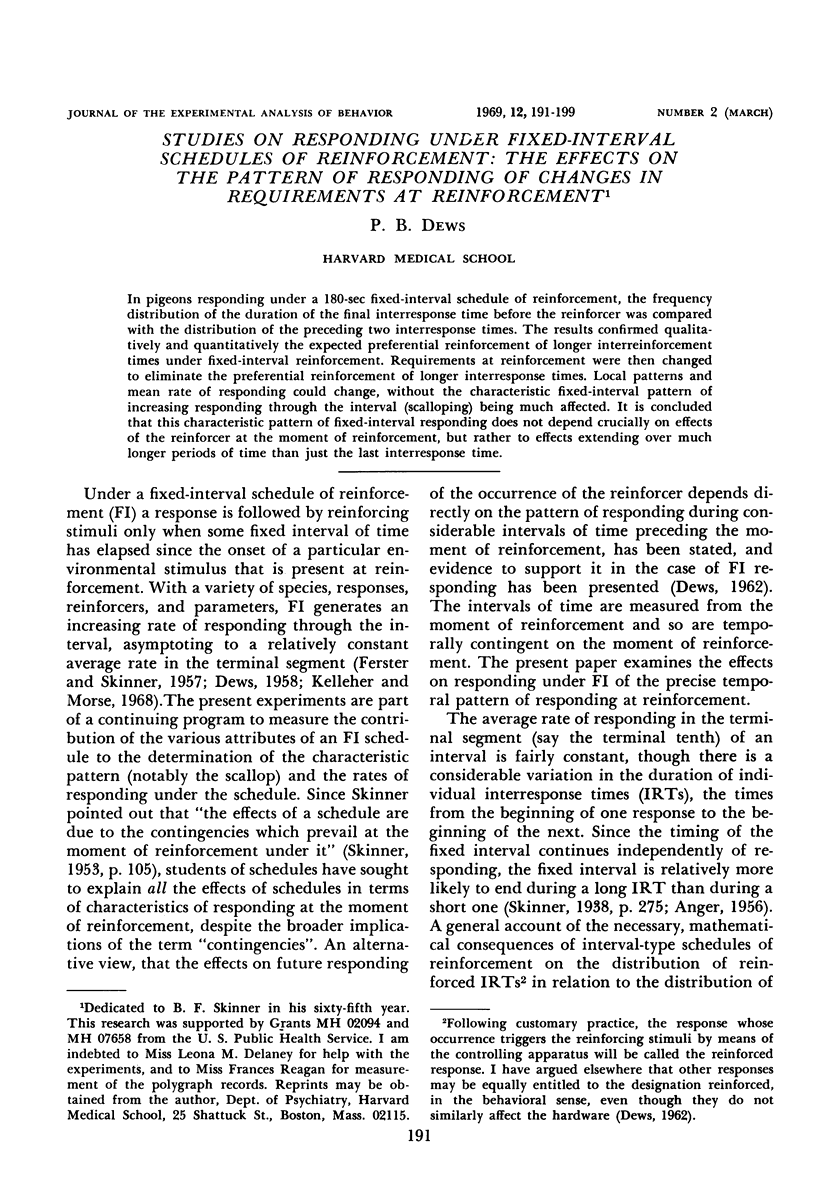
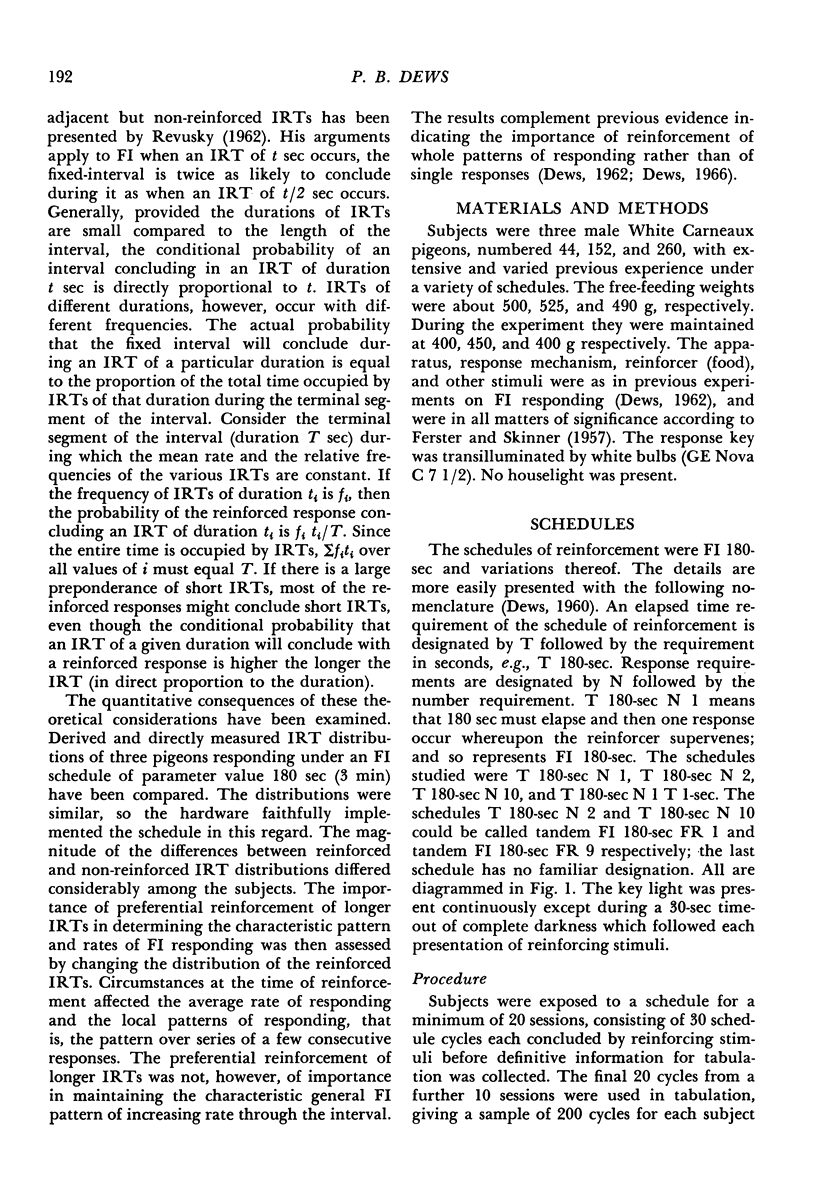
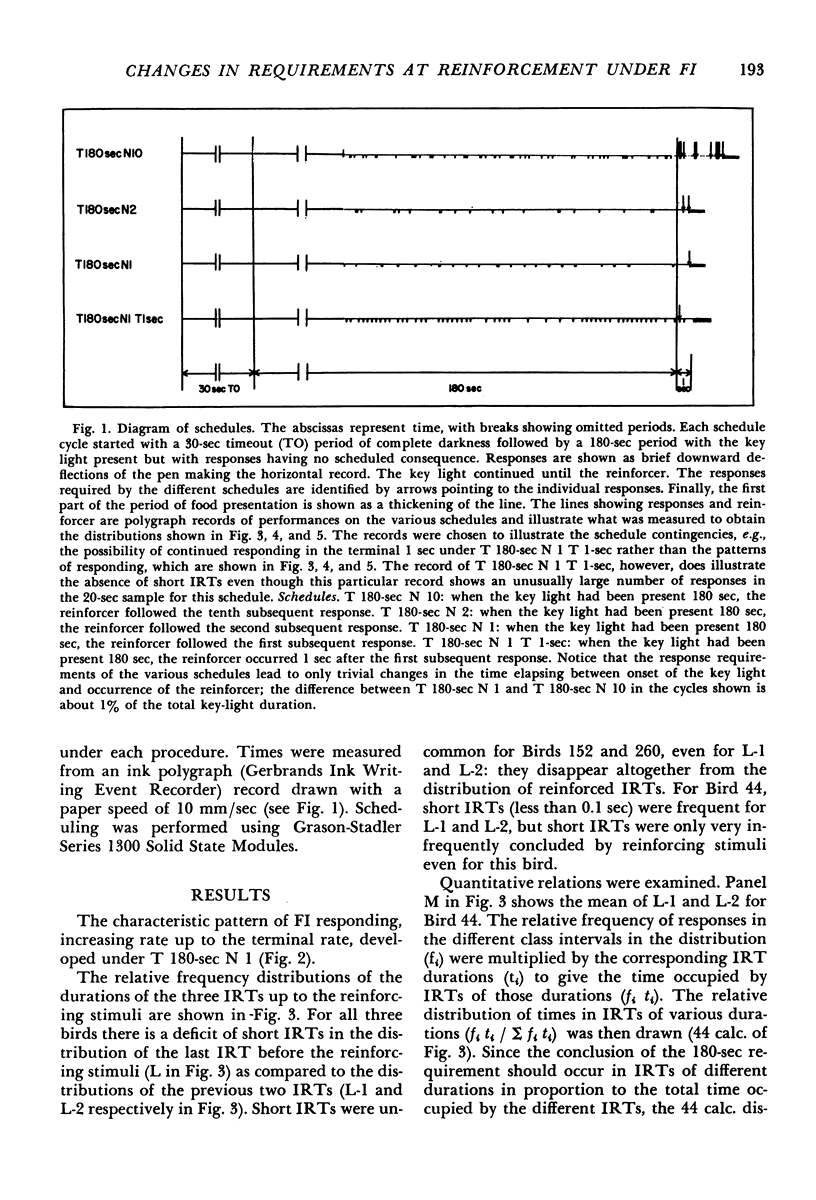
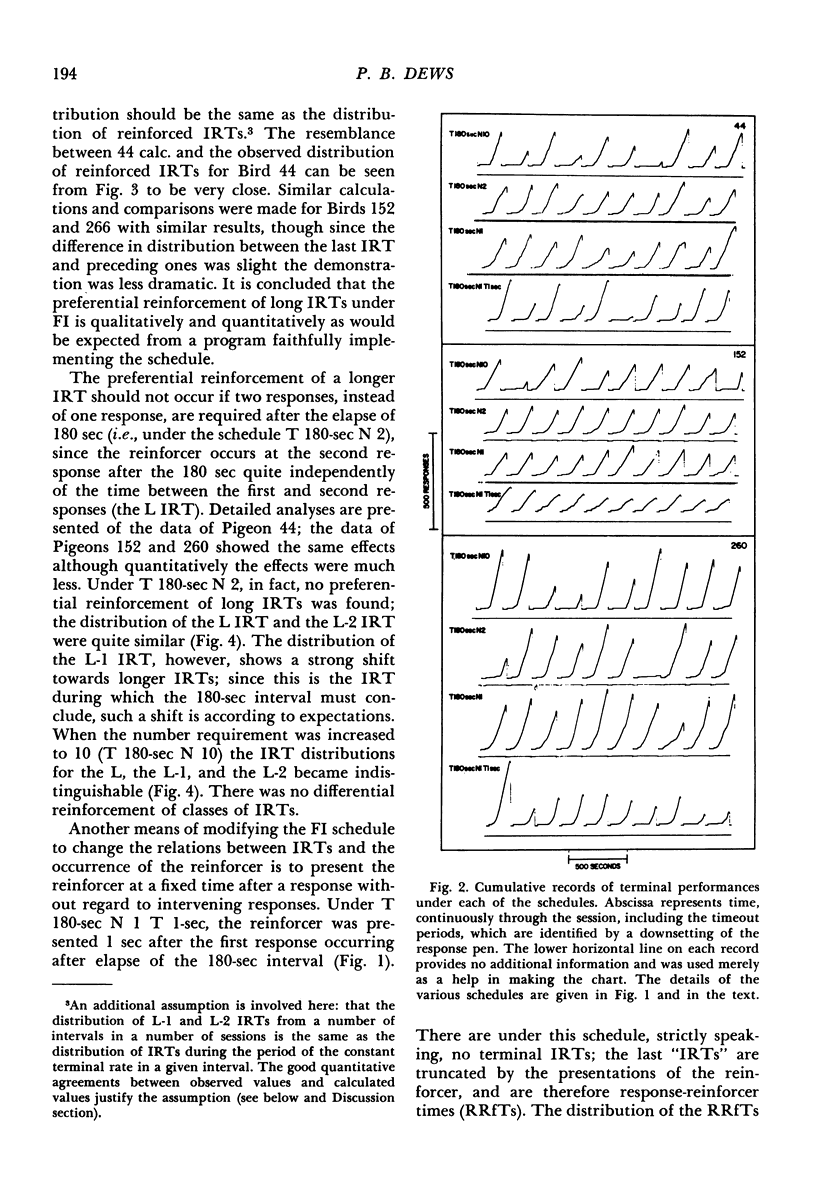
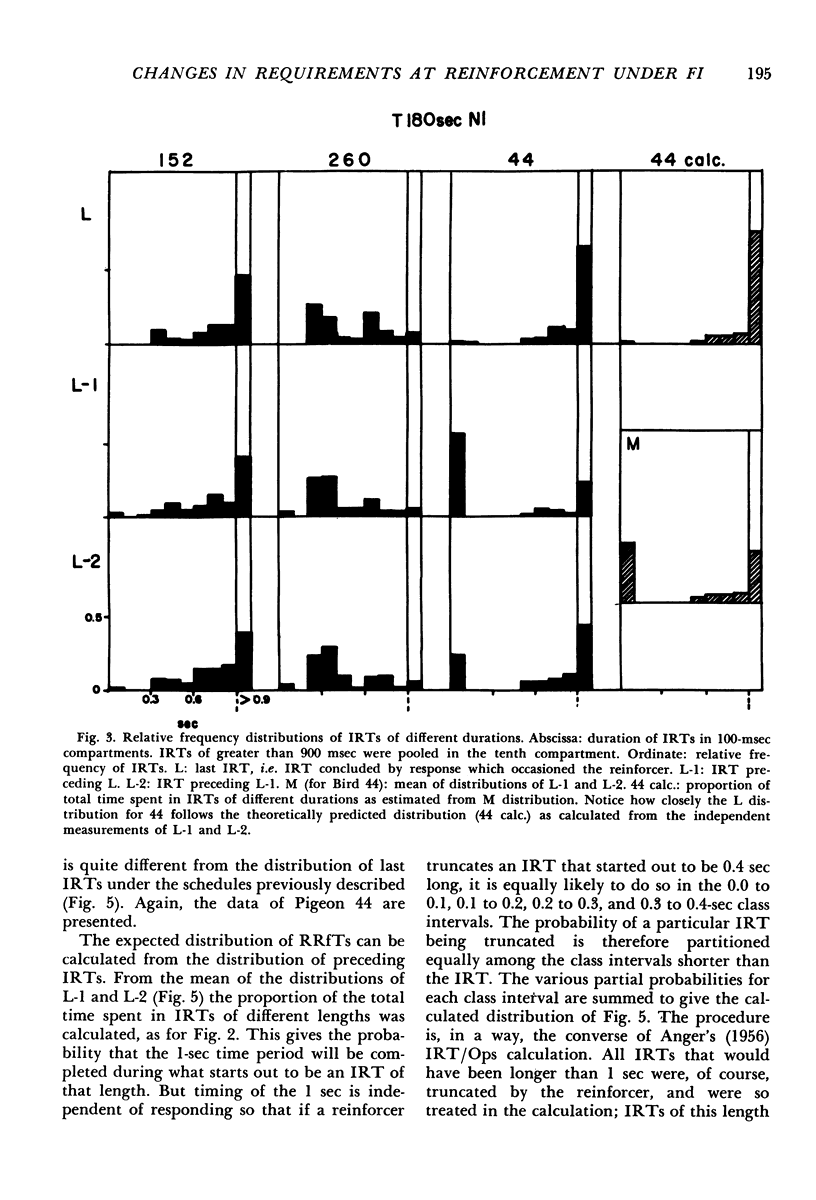
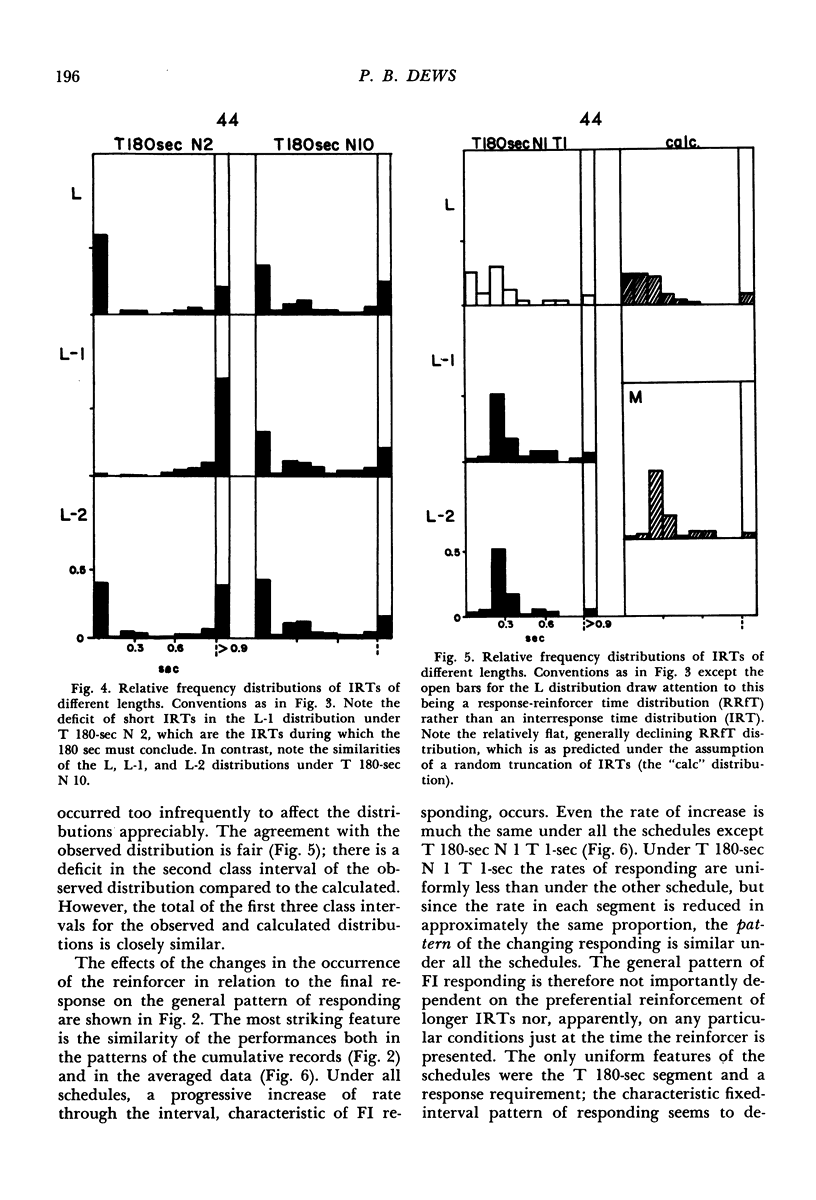
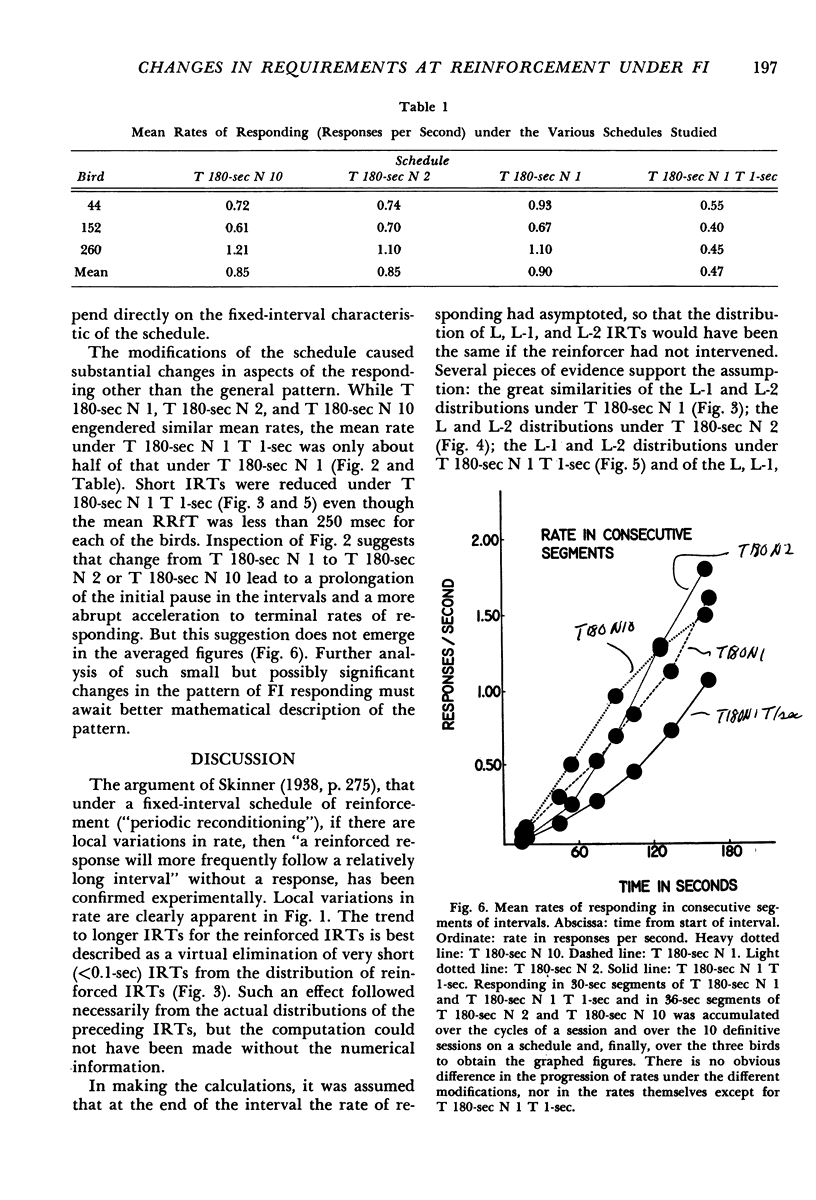
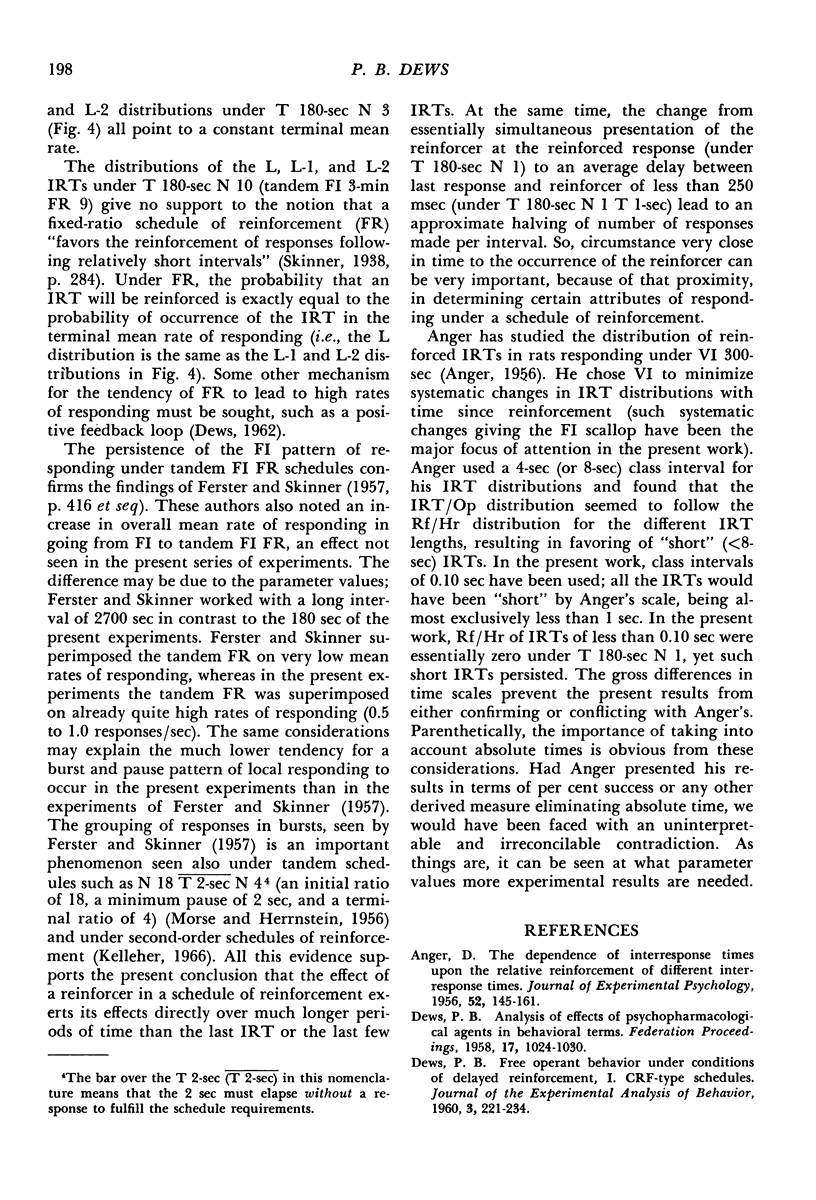
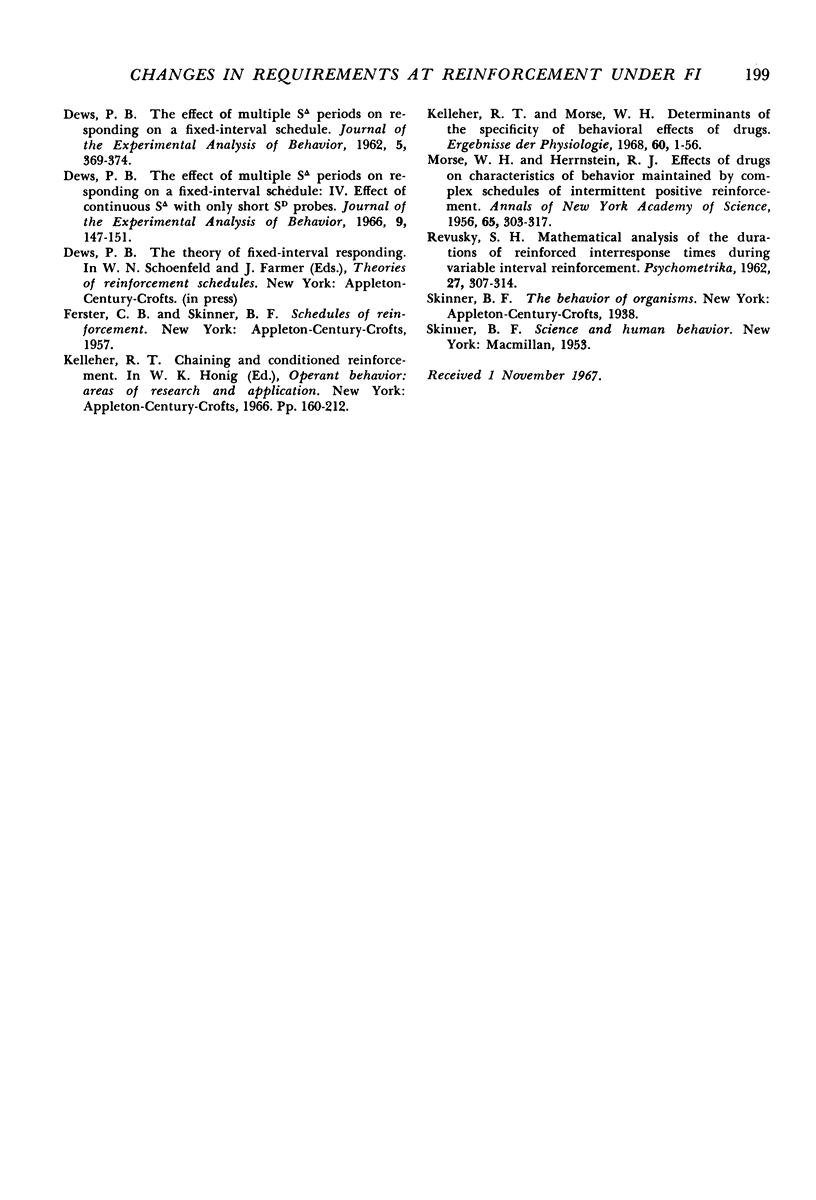
Selected References
These references are in PubMed. This may not be the complete list of references from this article.
- ANGER D. The dependence of interresponse times upon the relative reinforcement of different interresponse times. J Exp Psychol. 1956 Sep;52(3):145–161. doi: 10.1037/h0041255. [DOI] [PubMed] [Google Scholar]
- DEWS P. B. Analysis of effects of psychopharmacological agents in behavioral terms. Fed Proc. 1958 Dec;17(4):1024–1030. [PubMed] [Google Scholar]
- DEWS P. B. Free-operant behavior under conditions of delayed reinforcement. I. CRF-type schedules. J Exp Anal Behav. 1960 Jul;3:221–234. doi: 10.1901/jeab.1960.3-221. [DOI] [PMC free article] [PubMed] [Google Scholar]
- DEWS P. B. The effect of multiple S delta periods on responding on a fixed-interval schedule. J Exp Anal Behav. 1962 Jul;5:369–374. doi: 10.1901/jeab.1962.5-369. [DOI] [PMC free article] [PubMed] [Google Scholar]
- Dews P. B. The effect of multiple S periods on responding on a fixed-interval schedule: IV. Effect of continuous S with only short S probes. J Exp Anal Behav. 1966 Mar;9(2):147–151. doi: 10.1901/jeab.1966.9-147. [DOI] [PMC free article] [PubMed] [Google Scholar]
- HERRNSTEIN R. J., MORSE W. H. Effects of drugs on characteristics of behavior maintained by complex schedules of intermittent positive reinforcement. Ann N Y Acad Sci. 1956 Nov 2;65(4):303–317. doi: 10.1111/j.1749-6632.1956.tb49641.x. [DOI] [PubMed] [Google Scholar]
- Kelleher R. T., Morse W. H. Determinants of the specificity of behavioral effects of drugs. Ergeb Physiol. 1968;60:1–56. doi: 10.1007/BFb0107250. [DOI] [PubMed] [Google Scholar]


